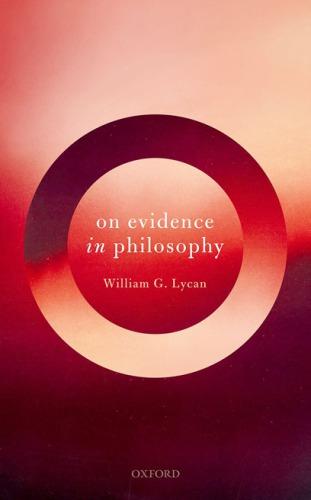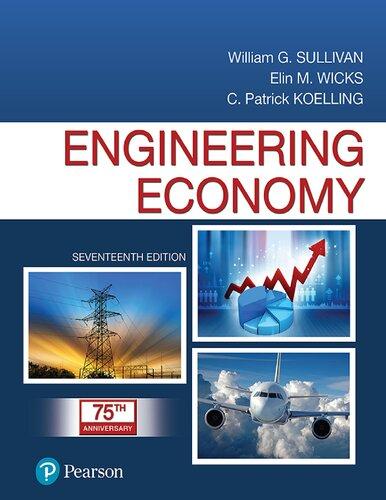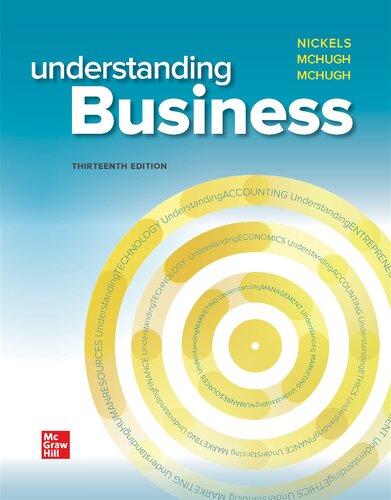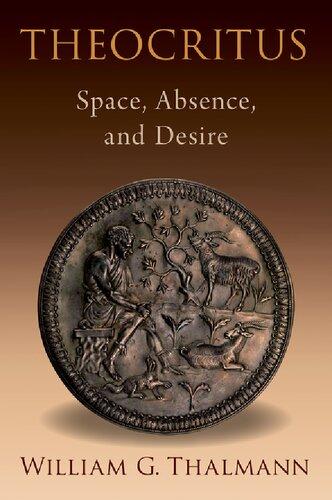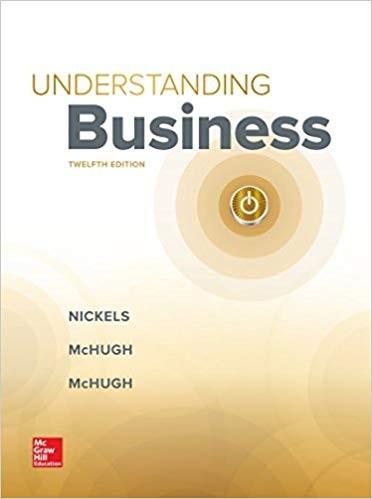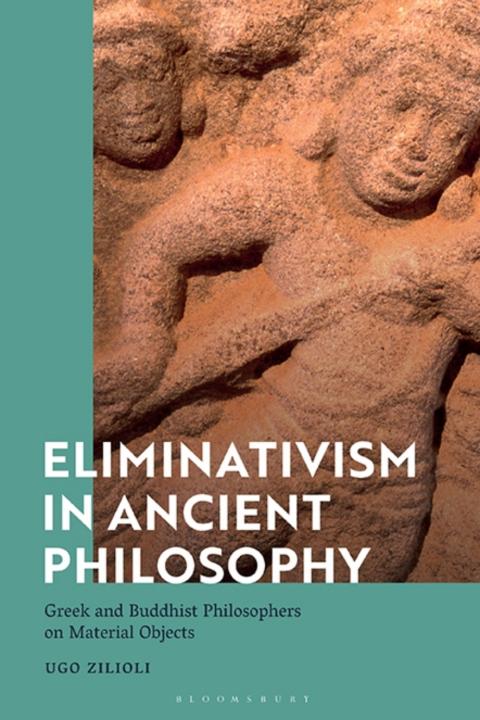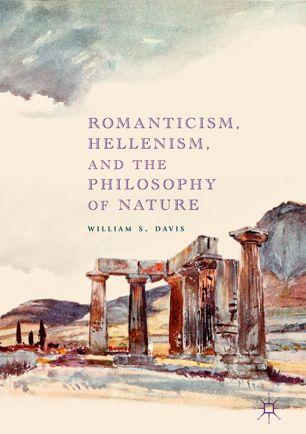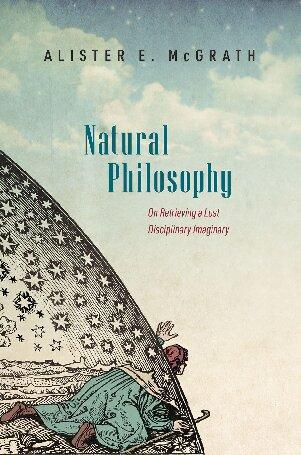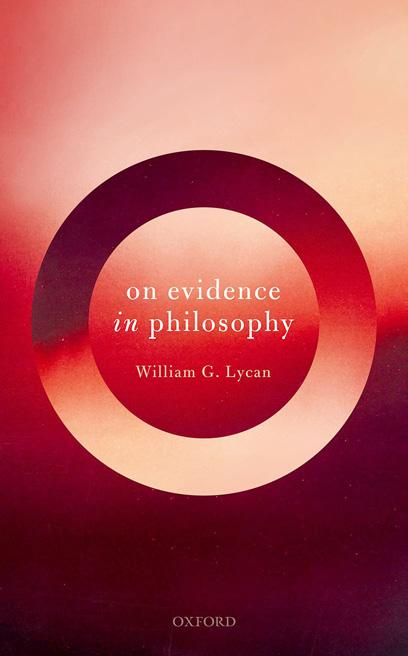OnEvidencein Philosophy
WilliamG.Lycan
GreatClarendonStreet,Oxford,OX26DP, UnitedKingdom
OxfordUniversityPressisadepartmentoftheUniversityofOxford. ItfurtherstheUniversity’sobjectiveofexcellenceinresearch,scholarship, andeducationbypublishingworldwide.Oxfordisaregisteredtrademarkof OxfordUniversityPressintheUKandincertainothercountries
©WilliamG.Lycan2019
Themoralrightsoftheauthorhavebeenasserted
FirstEditionpublishedin2019
Impression:1
Allrightsreserved.Nopartofthispublicationmaybereproduced,storedin aretrievalsystem,ortransmitted,inanyformorbyanymeans,withoutthe priorpermissioninwritingofOxfordUniversityPress,orasexpresslypermitted bylaw,bylicenceorundertermsagreedwiththeappropriatereprographics rightsorganization.Enquiriesconcerningreproductionoutsidethescopeofthe aboveshouldbesenttotheRightsDepartment,OxfordUniversityPress,atthe addressabove
Youmustnotcirculatethisworkinanyotherform andyoumustimposethissameconditiononanyacquirer
PublishedintheUnitedStatesofAmericabyOxfordUniversityPress 198MadisonAvenue,NewYork,NY10016,UnitedStatesofAmerica
BritishLibraryCataloguinginPublicationData
Dataavailable
LibraryofCongressControlNumber:2018955014
ISBN978–0–19–882972–0
PrintedandboundinGreatBritainby ClaysLtd,ElcografS.p.A.
LinkstothirdpartywebsitesareprovidedbyOxfordingoodfaithand forinformationonly.Oxforddisclaimsanyresponsibilityforthematerials containedinanythirdpartywebsitereferencedinthiswork.
Tothememoriesoftwogreatfriends,JayRosenberg (1942–2008)andDavidArmstrong(1926–2014),oneof whomwouldstronglyhaveapprovedofmostthatissaid inthisbook.
Acknowledgments
Muchofthematerialherehaspreviouslyappearedinprint,butthis bookisnotacollectionofpapers.Thepapersthatarelargelyreprinted fromearliervenues(Chapters2–5and7)werewrittentobecomepartof thebook.
Forhelpfulcommentsandexchanges,warmthanksto:DavidArmstrong, AnnetteBaier,HeatherBattaly,GeorgeBealer,DavidChristensen,Earl Conee,TimCrane,ChrisDaly,MichaelDevitt,NickGeorgalis,Alvin Goldman,GaryGutting,GilHarman,FrankJackson,MichaelLynch, AusonioMarras,AndrewMelnyk,CharlesPigden,JimPryor,BillRobinson, BillRoche,JayRosenberg,BruceRussell,ErnieSosa,KimSterelny,Steve Stich,CaseySwank,JimTomberlin,PetervanInwagen,FritzWarfield, JamesWilloughby,andcertainlyotherswhosecommunicationsIhave neglectedtorecord.
IamalsogratefultoeachofthreeOUPreviewers,whosereportsonan earlydrafthavegreatlyincreasedthecoherenceofmypresentation.One remainsanonymous,oneisAnthonyBooth,andthethirdisDavid Henderson,whoseextensivecommentson two draftshaveledtoimportantcorrectionsandotherimprovements.
PartoftheIntroductionwaspartofmyJohnDeweyLectureatthe EasternDivisionmeetingoftheAPA,January,2017;thelecturehassince appeared,undertheprescienttitle “OnEvidenceinPhilosophy, ” inthe ProceedingsandAddressesoftheAmericanPhilosophicalAssociation , vol.91(2017):102–17.
Chapter1isbasedprimarilyon “Moore ’sAntiskepticalStrategies,” in S.NuccetelliandG.Seay(eds.), ThemesfromG.E.Moore:NewEssaysin EpistemologyandEthics (Oxford:OxfordUniversityPress,2007):84–99. ReprintedbypermissionofOxfordUniversityPress.
Chapter2islargelyexcerptedfrom “MooreAgainsttheNewSkeptics,” PhilosophicalStudies 103(2001):35–53.
Chapter3isarevisedversionof “AParticularlyCompellingRefutation ofEliminativeMaterialism,” inD.M.JohnsonandC.E.Erneling(eds.), MindasaScientificObject:BetweenBrainandCulture (Oxford:Oxford
UniversityPress,2005):197–205.ReprintedbypermissionofOxford UniversityPress.
Chapter4isanexpandedversionof “FreeWillandtheBurdenof Proof,” inAnthonyO’Hear(ed.), MindsandPersons (RoyalInstituteof PhilosophySupplement:53,Cambridge:CambridgeUniversityPress, 2003):107–22.
MuchofChapter5isexcerptedfrom “GivingDualismitsDue,” AustralasianJournalofPhilosophy 87(2009):551–63.
SomeparagraphsinChapter6areliftedfrom “OnTwoMainThemes inGutting’ s WhatPhilosophersKnow, ” SouthernJournalofPhilosophy 51(2013):112–20,andonefrom “BealeronthePossibilityofPhilosophical Knowledge,” PhilosophicalStudies 81(1996):143–50.
Chapter7isbasedon “EpistemologyandtheRoleofIntuitions, ” in S.BerneckerandD.Pritchard(eds.), TheRoutledgeCompanionto Epistemology (London:Routledge,2011):813–22.
Chapter8containsafewparagraphsfrom “ExplanationistRebuttals (CoherentismDefendedAgain), ” SouthernJournalofPhilosophy 50 (2012):5–20.
Introduction
Mytitleisapun,asbetween(a)whatphilosophersmayuseasevidence fortheoriesand(b)whatsortsofthingsphilosophersmayconsidertobe evident.Eachofthoseisacentraltopicofthisbook.
Ishallsketchanepistemologyofphilosophyitself,apartialmethodfor philosophicalinquiry.Noelementofitisoriginalwithme,butIdonot thinkithaseverbeforebeenputtogetherinthewayIwilldohere.
Whataretheultimatesourcesofjustifiedphilosophicalbelief?
First, commonsense ,inacarefullyrestrictedsenseoftheterm the sortsofcontingentpropositionsMooredefendedagainstidealistsand skeptics: “Hereisonehand ... ” ; “IhadmybreakfastbeforeIhadlunch” ; “RightnowIamstandingupandtalkingtoaroomfulofpeople. ” In Chapters1and2Ishallbegininthedialectical(notliterary!)styleof Moore,thoughconsiderablyhoninghismethod,defendingfactsabout everydayhumanactivitiesasbeingimmunetoexistingidealistand skepticalchallenges.Themethoditselfisimmunetoallthesortsof objectionsthathavebeenmadeagainstit(thatitbegsthequestion, thatitisdogmatic,thatitprivilegesaparticularclassofpropositions, thatitawards commonsensicalness apositiveepistemicstatus,etc.).
Chapters3and4applymyparticularversionofMoore ’stechniqueto eachoftwophilosophicalissuesonwhichMoorehasnotpreviouslybeen broughttobear:eliminativisminthephilosophyofmind,andthefreewilldebate.
ItmustbeemphasizedthateveryMoorean–commonsensicalbeliefis defeasible.Anyofthemmightberefutedincontextbysomecombinationofreasons.Ihavesaidtheyareevidence,notthattheyareinfallible. Tocallthemevidenceiscontroversialenoughandrequiresconsiderable argument.
Oursecondsourceofjustifiedphilosophicalbeliefisthedeliverances ofcurrentscience,particularlythe “hard” physicalandbasicbiological
sciences atleast,whateveriswellconfirmedandfairlyuncontroversial withintherelevant field.
Inanyareaofphilosophyofmind,forexample,thetheoristshould taketherelevantscienti fic findingsveryseriously,evenwhenthose resultsdonotlegislate.Hereareanumberofclaimsthathavebeen madeabout pain duringthepast fiftyyears madeapriori,orperhaps onthebasisofintrospectionalone:thatpainis “self-intimating” (i.e.,if onehasapainoneisnecessarilyandperhaps eoipso awareofit);that one ’sbeliefthatoneisinpainisinfallibleand/orincorrigible;thatpainis intrinsicallyunpleasantandnecessarilymotivatesattemptstorelieveit; thatatleastsomepainissimpleinthatitdoesnothavepsychological components.Notoneofthoseclaimshasbeenconfirmedbyempirical researchonpain;each,thoughlogicallyconsistentwiththatresearch,is implausibleinlightofit.¹
Butwhatissogreat,oreventolerable,aboutcommonsenseand scienceconsideredasevidenceinphilosophy?Eachofthemisconspicuously empirical,whenphilosophyitselfisnotempiricalexceptpossiblyin theQuineanwaythateverythingis,andespeciallywhenineachcase thereisalongtraditionofrejection,skepticism,andatleastquestioning byphilosophersfarmoretalentedanddistinguishedthanI.Indefense, IadoptArmstrong’s(1973)testfortheefficacyofanepistemicmethod: asasignor “mark” ofprobity,weshouldjudgeamethodby itspowerof producingconsensusovertime.Scientificmethodshineshere;sciencehas producedconsensusafterconsensusafterconsensusinareaafterarea afterarea,andinveryshorttimes.
Asconsensusproducers,thehomelymethodsofperceptionand memorycomeinrespectivelysecondandthird.Weeasilyconvince othersofobservedfactssimplybygettingthemtolooktoo.
So,then,whataboutphilosophy’scomparativelynonempiricalmethods? Toaskthequestionisnearlytoanswerit.Ifthereisonethingthat philosophicalmethodshavenotdoneoverourtwomillennia,itis produceconsensus.Thatisplainhistoricalfact,butIshallelaborate onitinChapter6.
Asregardsthenatureofthephysicalworld,then,Ibelieveafelicitous explanatorycoordinationbetweencommonsenseandscienceisthebest
¹See,forexample,thereferencesinHardcastle(1999).
thatphilosophycanhopetoachieve.Forsomehearersthiswillbea downer;itwasforme,whenIarrivedattheviewearlyinmycareer. IspeakbutasI find.Andthejobdoesneedtobedone.
AsIhavesaid,common-sensebeliefsandscienti ficonesareofcourse fallibleandalwaysdefeasible.Butevenifwetakethemforgranted,and eventakentogether,theyarephilosophicallyprettyquiet.Theyare incompatiblewithsolipsismandotherformsofeliminativistidealism, andwithanyrobustantirealismregardingscience(thoughnotwith instrumentalism);butthatleavesachoiceamongmany,manyglobal metaphysicalandepistemologicalpositions,includingBerkeleianidealism(which,asBerkeleyforesaw,isimmunetoMoore).Italsoentirely leavesoutallofvaluetheory,mostnotablynormativeethics,socialand politicalphilosophy,andaesthetics.Withonlycommon-senseandscientificpropositionstobuildon,wewouldnotgetmuchphilosophydone.
And,forthatmatter,wedonotthinkoftypicalphilosophizingas starting eitherwithcommon-sensefactsorwithscientificresults,though ofcoursesomephilosophizingdoes.Theremustbeatleastonefurther sourceofevidence.
Andthat(third)sourceis intuitions,inAnglo-Americanphilosophers’ currentnarrowsenseofthatterm.Wehaveintuitionsofvariouskinds: logical,grammatical,semantic,metaphysical,epistemological,moral, aesthetic.ButwhenIsaythesearevariouskinds,Imeanonlytoclassify thembytopic;Ibelievethenatureofanintuitionandthesortof evidentialvalueithasarealwaysbasicallythesame.AndIwillargue thatphilosophyalwaysandeverywheredependsonthem.Theyarea morefundamental sourceofphilosophicaljustificationthanarecommon senseandscience.Immobilizedinasensory-deprivationtank,wecould stillphilosophizeina(very)limitedwaybasedonvariousintuitions alone,withoutbringinginscienti ficorevenMooreancommon-sense propositions.
(Isitnotatleasttheoreticallypossible,then,thatargumentsbasedon intuitionscouldcastdoubtoncommonsenseand/oronscientific results?Yes,theoretically:Icanthinkofnoargumentthatdecisively rulesthatoutperse,becausewecannotlegislateinadvancewhat intuitionssomeoneorweourselvesmight findourselveswith.Ishall takethisupinChapter8.)
Butbeforeturningtothenatureandepistemiccredentialsofintuitions,Ishallinterpolatetwoothermethodologicalchapters.Chapter5
offersacasestudy,Cartesiandualism,asacautionarytaleandan illustrationofphilosophers’ hubris;Icallattentiontosomeofour persistentoccupationalfoiblesthatgiveusafalsesenseofepistemic securityandeffectivenessofargument.InChapter6,inspiredbyGutting (2009),Igivemyowndetailedbutpessimisticanswertothequestionof what knowledge isaffordedbyphilosophyunaided.
Chapter7addressesthequestionsofwhatan “intuition” is following GeorgeBealer,Itakethemtobeintellectualseemings andwhether intuitionshavethepowertojustifythesesbasedonthem.Theliterature containsasurprisingnumberofarguments against theevidentialforceof intuitions,andIrebuteachofthose.Themainexplicitdefensesof intuitionsasjustifying(liketwooftheanti-intuitionarguments)are reliabilist,but,beingnoreliabilist,Iprescindfromthose.Inanycase, intuitions’ naturalhomehasalwaysbeeninthemethodologyofreflective equilibrium,acoherentistmethod.
Ishouldemphasizethattheroleofintuitionsisintersubjective.Some intuitionsarenotwidelyshared.Someareatbestcontentious.Othersare sharedbyallexceptbyafewnutcases.²Otherthingsbeingequal,an intuitionhasweightinproportiontohowwidelyshareditis.
Chapter8reviewsafewstandardobjectionstocoherentism(which Ihaverebutted,nottosayshowntobeembarrassinglybad,inmyprevious epistemologicalwork),toseewhethertheyhaveanyspecialforceagainst reflectiveequilibriumofintuitionsinparticular.Intuitionsareshownto comeunderwhatLycan(1988b)defendedasthe “PrincipleofCredulity,” roughlythatappearancesareinnocentuntil atleastsomeslightreason is givenforsuspectingthemguilty.Thereisnoneedtoaskwhatproduces them,orforanymagicalorevenextraneousconnectionbetweenintuitionsandtruth.Forthosereasons,theexplanatory-coherentistaccountof intuitions’ beingevidenceisatleastsimpler,morestraightforward,and considerablylessproblematicthanreliabilistones.
Insum,Iadvocateapictureofphilosophyasaverywideexplanatory reflectiveequilibriumincorporatingcommonsense,science,andour firmestintuitionsonanytopic andnothingmore,notever.Ithink manycontemporaryphilosophersactuallyworkinthiswayandargueon
²Inepistemology,Imyselfamatwofoldnutcase:IsimplydonotsharetheLottery intuition,northeGinet–Goldman “barn” caseintuition.Ijustdonotgeteitherofthose,in thelinguists’ senseof “get.”
thesebases,butfewofthoseacknowledgethattheydo,andsomeofthem claimtobedoingsomethingelse,somethingmoreambitiousandfruitful.Noone,tomyknowledge,has defended thisoverallphilosophical epistemologyassuch.Especiallybecausecoherentismisatbestaminoritypositionincurrentepistemologyandgetsonlyoccasionalrespect. Iwouldliketochangethat(goodlucktome);butifIcannot,Iwouldlike philosopherstorealizethattheirownpractice looks indeliblycoherentist. Iftheywoulddisavowcoherentismtheywouldhavetosaywhatmore respectableandpowerfulmethodtheythemselveshavebeenemploying, anddefenditagainstthecasepresentedinthisbook.
1 AVersionofMoore’ s Method
Mooreiswellknownforhisdistinctivecritiquesofidealismandof skepticism.Fewphilosophershavedefendedidealismagainsthim, becausesincehisdayfewhavedefendedidealismatall.Butskeptics andtheirsympathizershavespokenout.Forthemostpart,their responseshavebeenshallowdismissals thatMoorehasbeggedthe question,thathisprivilegingof “ commonsense ” isarbitraryanddogmatic,etc. thoughtherehavebeenmoreextensiverebuttalsaswell.
IthinkthemainobstacletoseeingthegenuinepowerofMoore ’ s criticalmethodwashisownfault:thathemadeatleast fivedifferent antiskepticalmoves,withoutdistinguishingthem,andtheydifferintheir failings.Lycan(2007)painstakinglysortedthroughthem,¹andargued thatfourofthem,indeedthemainargumentsofMoore’sclassics “Hume’sTheoryExamined,”“ADefenceofCommonSense,”“Proofof anExternalWorld,” and “Certainty”²dofail.Twoofthoseare flatlybad arguments,andtwocomesoclosetoquestion-beggingastobedialecticallyuseless.The fifthargument,Ishallargue,isbrilliantlysuccessful. Butthatone,thoughofferedhereandthereincapsuleform,isnowhere fullystatedinanorderlyfashion.
TheSuccessfulArgument
Its firstelementisintroducedin “TheConceptionofReality” (1917): (I)Moorecalledit “translat[ion] ... intotheconcrete” (p.209).Inthat
¹AndIdomeanpains.Moorewasnothisownbestfriend. ²CollectedaschaptersinMoore(1953/1962),(1959/1962),and(1968).Thepapersare sofamiliarthatIshallcontinuetorefertothemjustbyname.
paperhewasattackingBradley’sidealistclaimthattimeisunreal.Firsthe arguedthatthatclaimshouldbetakentoentailthattherearenotemporal facts,suchasthefactthathe,Moore,hadhadhisbreakfastbeforehehad hislunch;ifitdidnotmeanthat,thenwhatwasitsupposedtomean?³
NowofcourseBradleyhaddefendedhisthesis,letusgrantbyan argumentwecouldreconstructasdeductivelyvalid.But,obviously,his argumenthadpremiseswhichwerenotthemselvesdefended.Soweare confrontedbythosebrutepremisesandavalidderivationoftheconclusionthattimeisunreal,fromwhichMoorefurtherderivedthe corollarythathedidnothavehisbreakfastbeforehehadhislunch.⁴
Next(II):Moorewasvividlyawarethatanydeductiveargumentcan beturnedonitshead.
[A]principle,whichmanyphilosophersare,Ithink,apttoforget: .thatthe merefactthatonepropositioncohereswithorfollowsfromanotherdoesnotby itselfgiveustheslightestpresumptioninfavourofitstruth.(1953/1962,p.137)⁵
Thatanargumentisdeductivelyvalidischeap.Theargumentmust ofcoursehavepremises.Tocallitvalidistosayonlythattheset {P₁, ... Pn,~C}isinconsistent.Its proponent ofcoursewantsustoaccept P₁–Pn andthereforetoreject~CandacceptConthestrengthofthem. Butnothingintheargumentitselfforcesustodothat,sinceifwewishto denyitsconclusionwehaveonlytorejectoneofthepremises.
Moregenerally infact,throughoutphilosophyandeveryother subject adeductive “proof ” canbenomorethananinvitationto compare
³ThoughcertainlyithasbeendisputedthatfellowidealistMcTaggart,forexample,did intendhisviewtohavesuchconcreteconsequences.ButtointerpretaHegelianidealist otherwisewouldhavebeenascholarlytaskbeyondMoore’spowers(orcertainlymine). ThoughMcTaggartwasMoore’sownteacher;canthequestionneverhavecomeup?
Berkeley,ofcourse,wasanidealistofquiteadifferentsort,insistingonthetruthof ordinaryconcretecommonsensicalpropositions(butalsocontendingthathisidealist analysisofthemwasitselfcommonsensical),andMoore’smethodcouldnotevenbegin tobeappliedagainsthim.Butfordiscussiononthispoint,seeCarney(1959).
⁴ Iowethiswayofunderstandingthe “translation” proceduretoVereChappell’slectures fiftyyearsagoattheUniversityofChicago.
⁵ Andcf. “Certainty” (HowisonLecturedeliveredattheUniversityofCalifornia, Berkeley,1941, firstpublishedinMoore(1959/1962)):
[S]olongas ... [theskeptic’spremiseisnotitselfdefended,]myargument, ‘IknowthatIamstandingup,andthereforeIknowthatIamnotdreaming,’ remainsatleastasgoodashis, ‘Youdon’tknowthatyouarenotdreaming, andthereforedon’tknowthatyouarestandingup.’ AndIdon’tthinkI’ ve everseenanargumentexpresslydirectedtoshowthatitisnot.(p.245)
credibility:ofthepropositionsP₁, ... Pn,and~C,whichhastheleastclaim onourbelief?
Sofar,then,i.e.,givenavaliddeductiveargumentforanidealistor skepticalconclusion,wehavenomorereasontoaccepttheconclusion onthestrengthofthepremisesthantorejectoneormoreofthepremises becausetheconclusion’sdenialismorecredible.ModusPonensor ModusTollens?
Andthatleadsustothemethod ’sfulcrum, firstmadefullyexplicitin “FourFormsofScepticism ”⁶ (thistimeonanepistemologicaltopic,vs.
Russell(1927a,1927b)):(III)Moore’sdistinctivepointis comparative
Russell’sviewthatIdonotknowforcertainthatthisisapencilorthatyou areconsciousrests,ifIamright,onnolessthanfourdistinctassumptions [(1)–(4)]. ... AndwhatIcan’thelpaskingmyselfisthis:Isit,infact,ascertain thatallthesefourassumptionsaretrue,asthatI do knowthatthisisapenciland thatyouareconscious?Icannothelpanswering:Itseemstome more certainthat I do knowthatthisisapencilandthatyouareconscious,thanthatanysingleone ofthesefourassumptionsistrue,letaloneallfour IagreewithRussellthat(1), (2)and(3) are true;yetofnooneevenofthesethreedoIfeel as certainasthat Idoknowforcertainthatthisisapencil.(p.222)⁷
⁶ Writtenca.1940,collectedinMoore(1959/1962).
⁷ Theoddthingisthatlessfullydevelopedversionsofthepointhadbeenpoppingup hereandtherefromearlyon,instrangelyisolatedbutunmarkedparagraphs.From “Hume’sTheoryExamined” (lecturegivenin1910,butnotpublisheduntildecadeslater in(1953/1962)):
Andallthreeof[thepropositionsunderattack] aremuchmorecertain thananypremisswhichcouldbeusedtoprovethattheyarefalse;andalso muchmorecertainthananyotherpremisswhichcouldbeusedtoprovethat theyaretrue.ThatiswhyIsaythatthestrongestargumenttoprovethat Hume’sprinciplesarefalseistheargumentfromaparticularcase,likethis inwhichwedoknowtheexistenceofsomematerialobject.
(pp.142–3)
Andfrom “SomeJudgmentsofPerception” : Ithinkwecansafelychallengeanyphilosophertobringforwardany argumentinfavoureitherofthepropositionthatwedonotknowit,orof thepropositionthatitisnottrue,whichdoesnotatsomepoint,restupon somepremisewhichis,beyondcomparison,lesscertainthanisthe propositionwhichitisdesignedtoattack.(p.228)
Buthehadmadenothingmoreofthoseuntilnow.Later,from “MaterialThings,” inMoore (1953/1962):
“[T]heattempttoprovebymeansofsuchaprincipleasHume’s,thatwe cannotknowoftheexistenceofanymaterialobject,seemstometobea characteristicinstanceofasortofargumentwhichisverycommonin
Andthepointisnotjustaboutsubjectivecertainty.Moorecontinues,
Naymore:Idonotthinkitis rational tobeascertainofanyoneofthesefour propositions,asofthepropositionthatIdoknowthatthisisapencil ... . (ibid.)
“Rational” hereisthenormativenotion.⁸
So:(IV)Whenconsideringanidealistorskepticalview, firsttranslate itintotheconcrete.Theresultingpropositionwillnormallybeanegative one.Compareitsnegand,onebyone,withthepremisesofanyargument thathasbeenmarshalledinfavoroftheidealist/skepticalview.Youwill findthatatleastoneofthepremisesobviouslyloses:thepremiseis undeniablylesscredible,lesscertain,lessplausible,lessrationaltoaccept, etc.,thanisthenegand.Andso,ofcourse,istheidealist/skepticalview itself.(Iamdeliberatelybeinglooseinmyuseoftermslike “rational,” “credible,” and “plausible.” Thisisbecause,asIshallarguebelow,one neednotdoanyphilosophicalepistemologytomakeorappreciatea Mooreancredibilitycomparison.)⁹
Thatistheway,perhapsaweakeronethanMoorewouldhaveliked, inwhichhedoes “refute” idealismandskepticism.
philosophy:namely,anattempttoprovethatagivenpropositionisfalse,by meansofaprinciplewhichis,infact,muchlesscertainthanthe propositionwhichissupposedtobeprovedfalsebyitsmeans” (pp.160–1)
⁸ ThatdisposesofthedilemmaposedbyBaldwin(1990,p.270)asbetweenmerelya subjectivefeelingofcertaintyandtherelevantproposition’sobjectivelybeing “established as ” certain.ThelatterdistinctionisMoore’sown,from “Certainty,” butBaldwin’sdichotomyisfalse:Forittobenormativelyrationaltoprefertheknowledgeclaimtooneofthe skeptic’spurelyphilosophicalassumptions,weneednotdraginanyfurthermaterialthat “establishes” theknowledgeclaim;seethesecondsectionofChapter2below.(However, tohiscredit,Baldwindiscernsthemorebasicpointaboutcomparativity;seesec.2of Ch.IX.MichaelWilliams(1996)gotitalso.AndIhaverecentlycomeacrossadiscussion noteonStroud(1984),byJohnO.Nelson(1990),thatoffersMooreacomparative “principleofweightedcertainties.”)
⁹ Lycan(2001a,2007)talkedofa plausibility comparison.Conee(2001)andKelly(2005) havepointedoutthat “plausible” hasanunfortunateconnotationofsuperficialness,often meaningonlysomethinglike “attractiveat firsthearing.” (Wespeakofa “plausibleconman, ” and,asKellysays,onecancallaclaimplausiblebutultimatelyunworthyofbelief.) Kellyproposes “reasonable,” whichis finewithmeexceptthatthenounform “reasonableness ” iscumbersome.InwhatfollowsIshalltrytostickwith “credible,” hopingitwillbe takeninitscolloquialsenseandnotconfusedwithideassuchas “credence” fromformal epistemology,whicharetiedtoprobabilitytheory.
Applications
LetusconsiderBradley’sargumentagainsttime.Asalways,wemust makeacomparativejudgment:isitmorerationaltoaccepteachofthe argument’spremisesandalsotheconclusion,oristheconclusion implausibleenoughthatweshouldreconsiderandrejectoneormore ofthepremises?(Noticeagain(II)thatthatquestionis inevitable in consideringanydeductiveargumentonanytopicwhatever.)
SincetherealityoftimeisdirectlyentailedbysomethingMoore finds tediouslyobvious,thathedidhavehisbreakfastbeforehehadlunch,he mustlookatthepremisesofBradley’sargumentandseewhethereach andeveryoneofthemismorecrediblethanthathehadbreakfastbefore hehadlunch.Butwhenhedoesthat,he findsthatatleastonepremise is,ifnotgobbledygook,distinctivelyabstractandphilosophical.For example,oneofBradley’sassumptionswasthat eveniftimeisinfinitely divisible itmustinvolvearelationof “immediatelybefore” andthe converse “immediatelyafter” (1893/1930,pp.39–40).Butwhywould anyoneacceptthat?¹⁰ Andmuchmoretothepoint,howcoulditpossibly bemorereasonabletobelieveit,thantobelievethatwehadbreakfast beforewehadlunch?
Asweknow,allphilosophyiscontentious;thatiswhyitis(counteretymologically)called “philosophy.” Notcountingmathematicallogic, itstrackrecordinestablishingresultsisnotasgoodaspoororeven dismal;itisnearzero.¹¹Everyphilosophicalpropositionisperpetually opentochallenge;and,infact,nomatterhowsecureisanorthodoxy
¹⁰ Foronething,itisimplausibleonitsface.OneofMcTaggart’skeyassumptionswas that “Temporalmodessuchaspastnessandfuturityaremonadicpropertiesofevents,” whichatleastisnotunreasonableevenifitpalesincredibilitybeside “Ihadbreakfastbefore Ihadlunch” (andconflictswiththefourth-dimensionalviewoftime).
Thereis asense inwhich “time” hasbeenshownbysciencetobeunreal:inphysical reality,independentlyofperceivingminds,thereisneither “ passage ” nor “flow ” noran objectivepresentthatmovesforwardcreatingmorepastbyeatingupwhatwasfuture,but onlyacoordinate,itselfeternal,withpositions(instants)conventionallymarkedbyreal numbers.Obviously,thatisnothreatto “IhadbreakfastbeforeIhadlunch”;andofcourse, itisnottosaythathumanspeakersspeakfalselywhentheyrefertoeventsasbeingpastor future,orwhentheytalkoftime flowingorpassing;suchtalkisindexical,andthetruth conditionsofsuchutterancesinvolvethetimesoftheutterancesthemselvesand/orthe referencetimesofthethoughtstheyexpress.
¹¹HereIdepartfromMoore,whoIdoubtwouldhaveagreed.Thematterdeservesmore discussion,andwillreceiveitinChapter6below.
reigningatagiventime,itwilllaterbeoverturned.Anabstract,apriori philosophicalassumption n.b.,a bare assumption,becauseweare talkingaboutanundefendedpremise isterminallyunlikelytobeas rationallycredibleasaneverydayfactsupererogatorilywellsupportedby perceptionandshort-termmemory.
Sometimesitisclaimedthatsuchanassumptionisanalytic,ora somehow “conceptual” truth,andsonotinneedofdefense.Butevenif oneisunpersuadedbyQuineandbelievesinanalyticorconceptual truths,¹²theappealwillnothelptheidealisthere.Noonewhoreasonably thinksthattheprincipleinquestionisfalseisgoingtobeconvertedby thebareassertionthattheprincipleisanalyticallytrue.
Wemaywonderwheremetaphysicalpremisescomefrom.Arethey deliverancesofthe lumennaturale?DoestheThirdEyeofthemetaphysician’smindgetararelookataPlatonicForm?Perhapstheyjust articulatefeaturesofourordinarywaysofconceivingcertainthings. Whatever;theirepistemiccredentialsareobscure,and,moreimportantly,theyareshoddy.Ametaphysicianwhoclaimedto “justknow” that suchanabstractpremiseistrue(“Thisisadeepintuition”)couldnotbe takenveryseriously.¹³Evenifthepremisedoesseemtruetouswhen first weconsiderit attheparticulartemporalandgeographicalpointinthe historyofphilosophy,andwellcossettedamidthephilosophicalcommunitywehappentoinhabitanditsdefiningfads¹⁴—thereisnorational groundforpledgingallegiancetoit inpreferenceto aplaintruthof commonsense.¹⁵ Moorehasexcellentgroundsforhiscompetingconcreteproposition:healwayshasbreakfastbeforehehaslunch,andhe specificallyremembersdoingsotodayinparticular.Aforcedchoice
Also,Iwouldneverdenythatphilosophysometimesgetsoneofitsareasintogood enoughmethodologicalshapethattheareaturnsintoascience.Iwillexpandthispointtoo inChapter6.
¹²Cf.G.Russell(2008).
¹³ “Intuition” heremeaningsomethinglike insight.Onwhatcurrentphilosophersmore strictlycall “intuitions,” seeChapters7and8below.
¹⁴ Onthis,seeChapter6.
¹⁵ Conee(2001,p.56)observesthatthepremisedoesatleastseemtrue,andso “somethingnotice[d]inconsideringtheproposition moreorlessconclusivelyindicates tothepersonthatitistrue.” Granted,somethingmust.Butthecomparativepointremains. Coneegoeson(p.57)tosuggestthatperhapsagoodargumentcouldbegivenforthe premise.Butbyhypothesiswearetalkingaboutultimate, undefendedpremises.
betweenthatpropositionandBradley ’saboutthe “immediatelybefore ” and “immediatelyafter” relationshasgottofavortheformer.
Moreover,asisnotorious,apriorimetaphysicalviewshistorically havelittlestayingpower;onephilosophicalera’sfundamentalprinciples areoftenrejectedinthenexteraasquaintrelics.Howcouldan abstract philosophical premiseeverhaveasstronga(legitimate)claimtoour allegianceascanahumblecommon-sensepropositionsuchasMoore ’ s autobiographicalones?Sciencecancorrectcommonsense;metaphysics andphilosophical “intuition” canonlythrowspitballs.¹⁶
Thus,wecouldtakeaverystrongMooreanposition:sincethereality oftimeisdirectlyentailedbysomethingMoorealreadyknowstobetrue, theculpritmustbeoneoftheothermembersoftherelevantinconsistent set;itmustbeone oranother ofBradley’s(orMcTaggart’sorwhomever ’s)premisesthatisfalse.Itmaybeinterestingtoconductacredibility surveyanddecidewhichofthePi islesscrediblethantherest;infact, surelyitwillbeinstructiveandilluminatingtodothat.Butthatisnot necessaryinordertovindicateourcommon-sensebeliefintherealityof time.Forthelatterphilosophicalpurpose,itdoesnotmatterwhichofthe Pi isfalse.Infact,wedonotevenhavetoknowwhattheargument’ s premisesareexactly;whatevertheyare,theycannotallbetrue.Sothere! ButwhetherornotMoorehimselftookthatpreemptiveposition,Iam notdoingso;tomeithasanunpleasantlyaprioristicfeel,and,atleast officially,Iamcontentwiththepiecemealcomparisons.¹⁷ (Formoreon theVeryStrongposition,seetheAppendixtothischapter.)
¹⁶ Insayingthis,Iamnotassumingacleardistinctionbetweentheoreticalscienceand metaphysics,nordoIbelieveinanysuchdistinction.Butthatistosayonlythatthereare borderlinecases.
¹⁷ ThatMooredidnottaketheVeryStrongposition,Weatherall(2015)pointsout,is madenearlycertainbyhisscrupulouslythoroughexegesesin “FourForms” ofRussell’ s skepticalarguments.
WeatherallreadsLycan(2001a,2007)astakingtheVeryStrongposition,asdoesRinard (2013).Someoftherhetoricin(2001a)didencouragethat,toprovoketheaudience,and Weatherallattributestometheviewthat “thesceptic’spremisesarealways ‘philosophical’ insomedamningsense” (p.227).HeaskshowIcouldknowthis mustalways beso,andhe wouldbequiterighttocallmeoutonthat.Butmybeliefisnotapodeicticorapriori,rather inductive:Ihavejustneverseenanidealistorskepticalargumentthatdoesnotrestonan abstractandcontentiousphilosophicalpremise,andI findithardtoanticipateonethatdid not.RegardingMoore,Weatherallgoesontoinsist(p.228)on “adistinction ... between thestrategythatMooreusesagainstthesceptic andMoore’spersonalconvictionsor expectationsaboutskepticism”;Iinsistonthesamedistinctioninmyowncase.
ReturningtoRussell:ifhispremises(1)–(4)aretrue,thenIdonot knowthatthisisapencil,orthatIhavehandsorthatmynameis “WilliamLycan” orthatIhavejusttypedtheword “ name. ” Butwhichis morerationaltobelieve:thatIdonoteverknowanysuchthings,orthat atleastone of(1)–(4)isfalse?Consideredasacomparison,asMoore rightlyinsistsitmustbeconsidered,thequestionhardlyleavesroomfor discussion.Russellloses.(1)–(4)are,eachone,contentiousandeminentlydisputablephilosophicalassumptions.Istronglydoubtanyof themwilleverbesettledonewayortheother.Meanwhile,Moorehas excellentgroundsforhiscompetingproposition:heislookingrightat thepencilandcanfeelitinhishand.¹
Moore ’sproofoftheexternalworld(1939)canbereconstructedin thissameway,thoughatacost.Therealityofmaterialobjectsisentailed bysomethingMoorealtogetherreasonablybelieves,thathehashands.
Lemos(2004,pp.150–3)attributestomenotonlytheVeryStrongpositionbuteachof twoevenstrongerclaims: first,thatitis always themostabstractphilosophicalpremiseina skepticalargumentthatmustberejected.(HepointsoutthatMoorehimselfgrantedatleast oneepistemologicalthesisthathasbeenusedasapremiseinskepticalarguments,which Moorecertainlydid,asinthequotationabovefrom “FourFormsofScepticism.”)Nothing Ihavesaidencouragesthatimputation.Thetargetargumentmaycontainacomparatively nonphilosophicalpremisethatisfairlyobviouslyfalse,muchmoresothanthemost abstractphilosophicalpremise.Youcaneasilymakeoneuponthespot.
Second,Lemoswrites, “[W]emightrejectthisskepticalargumentwithoutcondemning allpurelyphilosophicalpremisesbasedonallegedaprioriintuitions.Indeed,whyshould wecondemnasshoddyallpurelyphilosophicalpremises,andrejectallintuitions?” (p.153). IfIoranyoneweretocondemnallsuchpremises,wecouldhardlywriteanyphilosophyat all.Mypointasalwayswasandiscomparativeonly: when aphilosophicalpremiseisforced intodirectconflictingcomparisonwithaplainMoorean-commonsensicalproposition,the premiseloses.
Thereisafurthermisinterpretation,whichLycan(2001a)warnedagainstbuttoo obliquely: “UnlikeLycan,Mooredoesnotbasehisresponsetotheskepticalargumenton theclaimthattheepistemiccredentialsofphilosophicalintuitionsingeneralareshoddyor thattheycannotsometimesbereasonabletobelieve ... ” (pp.152–3).Icertainlydidnot denythattheycansometimesbereasonabletobelieve,butmoreimportantly,Ididnot base myresponsetoskepticalargumentsonanyclaimwhateverabouttheepistemiccredentials ofphilosophicalpremises,anymorethanIbaseditonanygeneralizationabouttruthsof commonsense.Formethereareonlythepiecemealdirectcomparisons,whicharenot basedongeneralizationsofanysort.
¹⁸ OutsidetheworksofMoore,philosophicalargumentsrarelyhavesuchspecific propositionsaspremises.Morecommonly,weappealtoexistentialgeneralizationsof them: “Somethingsmovefasterthanotherthings” ; “Sometimesathinglooksacertain waywhenitisnotthatway” ; “Iandotherpeopleoftenhavefalsebeliefs” ; “Somethings happenedalongtimeago.” Thatis fine,buttranslationintotheconcretedrivesthepoint more firmlyhome.
So,presentedwithanyphilosophicalargumentdesignedtoshowthat thereisnoexternalworld,wemustlookattheargument’spremisesand comparetheircredibilitytothatofourbeliefthatwehavehands.Itisa surebetthatthephilosophicalargumentwillhavesomecharacteristicallyabstractandcontentiouspremise,onethatcertainlypalesinits epistemicclaimonusbeside “Hereisonehand,andhereisanother.” (Asamplecomparisonisbetween “Hereisonehandandhereisanother” andMcTaggart’s(1908) “Everyexistentthinghasproperpartsthatare substances.”)Thus,dialecticallyspeaking,itishardtoseehowany philosophicalargumentcouldshowthatthereisnoexternalworld, andMoore’sproofstands.¹ ⁹
Mooremaintainedthatanargumentshouldbecalleda proof onlyifits premisesareknown(“Hume’sTheoryExamined”).Butnothinginthe presentcomparativeversionguaranteesthattheyareknown.Moore believedthattheyare,andonthepresentinterpretationofhisrebuttal ofskepticism,presumablytheyare.Fromtheexternalistpointofview, thatis fine.²⁰ Butifwearetoassureourselvesthatthosepremisesare known,weneedthepresentantiskepticalargument,andifwehavethat, theproofoftheexternalworldissuper fluous.So(thisisthecost aforementioned)eithertheproofissuper fluous,orMooremustabandon therequirementthataproof ’spremisesbeknown.²¹
InChapter2weshalllookmorecloselyatMoore ’ sjoustwith theepistemologicalskeptic.InChapter3weshallapplyhismethod
¹⁹ Inallthis,MoorewasstronglyinfluencedbyThomasReid;buthedidnotbuyinto Reid’scontainingpsychoepistemologicalsystemof “firstprinciples,” innatebeliefproductionmechanisms,etc.,anditisimportanttoseethatneitherthatsystemnoranyotheris neededtolicenseMoore’santiskepticalmoveaspresentedhere.
Greco(2002)arguesthatMooredidadaptsomelessloadedpositiveclaimsandmethods fromReid.Buthetiestheircommondefenseto perception’ s affordingadistinctiveformof knowledge,whichMooredidnot.(AsdoesPryor(2004).)
Somecynic(itwasnotAmbroseBierce,atleastnotin TheDevil’sDictionary)oncedefined “faith” as “believingtobetruewhatoneknowstobefalse.” Mooremighthavecharacterized idealistandskepticalphilosophyas “believingtobefalsewhatoneknowstobetrue.”
²⁰ Sosa(1999)suggestsanexternalistmoveforMoore,basedonthecounterfactual notionof “safety.” Baldwin(1990,Ch.IX)alsoconsidersanexternalistline.
²¹Weatherall(2015)offersacompetinginterpretationof “ProofofanExternalWorld,” accordingtowhichthatpapereschewsthecomparativestrategyentirelyandhasquitea differentdialecticalpurpose.Theinterpretationisbothamusingandsubtle,andmaybe right.ItisathemeintheMooreliteraturethat “ProofofanExternalWorld” isanoutlier anddoesnotworkinthesamewayastheotherpapers,whateverwaythatis(e.g.,also Greco(2002),Soames(2003)).
(asreconstructedhere)toadoctrinehecouldhardlyhaveimagined.In Chapter4weshalladaptittoquiteadifferentsortofissue.
VirtuesofthisVersion
ThiswayofunderstandingMooreavoidseachofthetwostandard shallowobjectionsmentionedinthebeginningofthischapter.
Firstshallowobjection:ItisnotsurprisingthatMooreshouldhave beenaccusedofbeggingthequestion,becausealthoughheneverdid actuallybeg,hecameverycloseatleasttwice.²²Butonthepresent interpretation,thereisnosuchissuetobeginwith.Mooreisonlyinvitingacredibilitycomparison.Asbefore,thecomparisonisbetween, e.g.,(i) “IhadmybreakfastbeforeIhadlunch” and(ii)Bradley’sphilosophicalassumption,thateveniftimeisinfinitelydivisibleitmustinvolve relationsof “immediatelybefore” and “immediatelyafter,” orbetween(iii) Russell’sfourpremisesand(iv) “IknowthatIhavehands.”
Itisconceivablethatsomepersoninthegripofaphilosophicalview mightinsistthatanaprioritenetofthatviewisactuallymorecredible than “IhadbreakfastbeforeIhadlunch” or “IknowthatIhavehands.” Itis conceivable eventhatwerewetogoaroundandtakeasurvey,alarge numberofpeoplewouldrate “Idon’tknowimmediatelythatthisisa pencil,nordoesitfollowlogicallyfromanythingorthingsthatIdo knowimmediately,andifthosethingsaretrue,mybeliefinorknowledgeofthepencilmustbebasedonananalogicalorinductiveargument, andwhatissobasedcannotbeknowledge”—thatwholeconjunction, eachconjunctcontroversialtothisday asinitselfmorecrediblethan “IknowthatIhavehands,” andifsoMoore’sstrategywouldhavefailed; butIcannotseethatoutcomeasevenfaintlylikely,andcertainlyMoore wouldnot.PerhapsitisabitmorelikelythanthatIwillnow flapmy armsand flytothemoon.Inanycase,though,Moorehasinnoway beggedthequestion.
²²Interestingly,asearlyas “Hume’sTheoryExamined,” Mooreanticipatesthechargeof question-beggingandtriestoblockit:
But,ofcourse,thisisanargumentwhichwillnotseemconvincingtothose whobelievethattheprinciplesaretrue,noryettothosewhobelievethat Ireallydonotknowthatthispencilexists.Itseemslikebeggingthe question.AndthereforeIwilltrytoshewthatitreallyisagoodand conclusiveargument.(p.136)
Manyphilosophershavefeltthatevenifhehasnotbeggedinthestrict sense,Moore’sresponsetotheskepticisshoddyandsuper ficial,andthat amoreprofoundresponseisrequired.Butcouldtherebeadeeperor morefundamentalphilosophicalmethodthanthecredibilitycomparisonenforcedbyadeductiveargument?Whatformmightamore profoundresponsetake?IshalladdressthisinChapter2.
Thesecondshallowobjectionwasthecomplaintaboutprivileging commonsense.ButnowhereinthepresentargumenthasMooreused theexpression “ commonsense ” (muchlesscapitalizedit,ashedidin “Hume’sTheoryExamined”).Ofcourse,intheeponymous “ADefence ofCommonSense” hedoesofferalonglistofpropositionsunderthat heading(actuallyhecallsthem “truisms”).Butmypresentversionofhis methoddoesnotevenmentionanysuchcategory,muchlesspropose that “ common-sense ” propositionshaveanyparticulargood-making property,muchlessinvestthemwitha “rightofancientpossession” (Lehrer,1971)orgivethemanyotherepistemicblessing.Thereisno privilegingofaspecialtypeofproposition.Nor,afortiori,isthere any premiseabout eithercommonsensicalpropositionsorphilosophical propositions.Thereisonlypiecemealcredibilitycomparison.Onthis interpretation,itis(emphatically)notthat “Ihavehands,”“Thisisa pencil,” etc.areknowninvirtueoftheirbeingcommon-sensepropositions;²³itisonlythattherelevantknowledgeclaimsthemselvesaremore crediblethanarethepremisesofanyphilosophicalargumentintendedto showthattheyarefalse.
Arelatedcomplaint,madebyUnger(1974)amongmanyothers,isthat Mooreisbeingdogmatic,insistingonholdingcommonsensebeliefscome whatmay.Butthatisacanard;Mooreisdoingnosuchthing.Inparticular, hedoesnotcontendthatcommonsenseisimpervioustoscientificdiscovery.(See,e.g., “WhatIsPhilosophy?” inMoore(1953/1962).)²⁴
²³Lemos(2004)understandsthe “commonsensetradition” asholdingthatcommonsensepropositionsareknown,buthetoorejectstheclaimthattheyareknowninvirtueof beingcommon-sensepropositions.Yet,accordingtohim(p.7),whenaphilosophicalview isrejectedbecauseofitsconflictwithcommonsense,theofficialgroundisthattheview conflictswithanitemofknowledge.
²⁴ Itusedtobe “ commonsense, ” asobviousaspracticallyanything,thattheearthis flat andmotionless,andthatthesunrisesandgraduallytravelswestwardtopassoverour heads. Exploration (intheliteralsense)andastronomyhaveteameduptoshowthat,despite appearances,theearthisaspheroidthatmovesaroundthesunandthat “ up ” meansonly “ away. ” Sotoo,chemistryandphysicshaveshownthatthemost “solid” graniteboulderis
Norwouldheeverdenythateverydaybeliefs,evenparadigmatically Moorean-commonsensicalonesheldwithgreatconfidence,havesometimesprovedtobemistaken.Thereisastory,Isuspectapocryphal,that onceinapubliclectureheusedtheexampleofanapparentwindow (“Thereisawindow” or “Thereissunlightshiningin”),whenthelocals knewthattheallegedwindowwasonlyrecessedlightingortrompel’ œil orsomesuch.²⁵ NodoubttheaudiencewouldhavefeltMoorehadbeen badlyembarrassed,butifhewas,hispositionwasnot notintheleast. Atleastonmyinterpretation,hisclaimisonlythatatanygiventime, someofmyhumdrumconcretebeliefswillbemorereasonabletoaccept, rationallymorecredible,thanarethepurelyphilosophicalpremise(s)of anyidealistorskepticalargument.Obviouslyitdoesnotfollowthatsuch beliefsarenevermistaken.
ThoughMooredidnotmentionthem,therearecommon-sensepropositionsofatleasttwootherstraightforwardlyfactualsortsthathaveas goodepistemiccredentialsandasbasicanevidentialroleinphilosophy. Quotidianmentalones,obviously: “She’sinseverepain, ”“Heisinabad mood,”“I’mtryingtorememberwhoplayedGloucesterinthatPBS film of KingLear. ” Anduncontroversiallinguisticpropositions,suchas “‘Theboyhitthecolorfulball ’ isanEnglishsentence,”“‘Goodoffbled threeoffplumberayellowwith’ isgibberish,” and “‘Sofoulandfairaday Ihavenotseen’ hastenwords.”²⁶ actuallyaregionofalmostcompletelyemptyspace,populatedonlybysomeminusculeand invisibleparticlesracingthroughitatunimaginablespeeds.Butphilosophers(especially idealistphilosophers)arenotexplorersorscientists,anddonotofferempiricalevidence. Makingthissamedistinction,Kelly(2005)observes: “Thisinvulnerabilitytobeing underminedby[specifically]philosophicalargumentthen,isareflectionnotonlyofthe epistemicstandingthatisclaimedforsuchbeliefsbutalsooftheperceivedimpotenceof philosophyitself ” (p.180).Indeeditis;seeChapter5below.
²⁵ Matson(1991)tellsaversionofthestoryandlocatesitinMoore’sHowisonLectureat Berkeleyin1941.IamindebtedtoBaumann(2009)forthereference.
²⁶ IsupposeIshouldalsomentionwhatwemightcallconceptualtruthsinanonapodeicticsenseofthatterm.IfollowQuineinrejectingtruthinvirtueofmeaningandthe purelyorcompletelyapriori(Lycan,1994,Chs.11and12),butthereareapparentlogical truths(“Afemalephilosopherisaphilosopher,”“Ifsomeonebutteredalltheparsnips,then noparsnipwentunbuttered”)andpropositionsthatwouldbedefendedprimarilyon linguisticgrounds(“IfDonaldhadroastedthepotatoes,thepotatoesweren’traw,”“Ifthe icemeltedintheglass,therewasliquidthere”).Iwouldclassifytheseunder “ common sense, ” astheyhavemostofthesamecharacteristicfeaturesasMoore’sfavoriteexamples, saveforthatofreportingparticulareventsorstatesofaffairs,but,asalways,myversionof Moore’smethoddoesnotrestonclassifyinganythingascommonsense.
